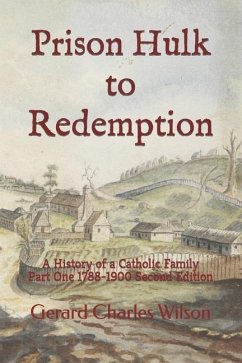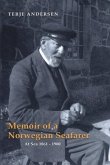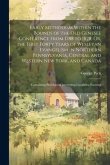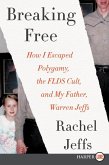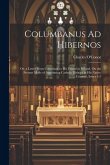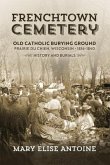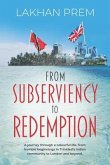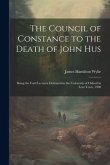SECOND EDITION Revised 2022 A history of colonial Australia, not of the famous and heroic, but of the small people, the anonymous people who were the heartbeat of a growing nation In this first book of his social history series, the author sets out on a journey through Australia's colonial history with his ancestors from British Isles. All arrived by the 1830s, two on the First Fleet in 1788. Most are from central and southern England. Four are from two little villages close by each other in Wiltshire: Semley and Donhead St Mary. In addition, two convicts and one free settler came from Dublin, Monaghan, and Donegal in Ireland, and a farming family of four came from Aberdeen in Scotland. It is surprising how much he finds out about them all-joys, successes, and tragedies. Their lives are anything but dull. James Joseph Wilson, who narrowly escaped the gallows and was surprisingly literate for a man thrice convicted of burglary, arrived in Port Jackson on board the Prince Regent in 1827. The colonial authorities assigned him to Robert Lowe, one of the Colony's early landholders. Lowe sent him to Mudgee in north-western New South Wales to shepherd his flocks. Young 18-year-old hutkeeper James Joseph was one of the first inhabitants in the Mudgee area. He teamed up with fellow convict Michael Jones to look for land. They married sisters Jane and Elizabeth Harris, daughters of free settlers, and travelled northwest to the Coonamble area, 330 miles from Sydney, to set up their farms. The two freed convicts and the Harris sisters became his great-great-grandparents. Nine convicts are in the direct line of his ancestors. He traces their lives against the social and historical background of colonial Australia, presenting a very different picture from the view usually found in school history books. They all thrive, taking advantage of their second chance. This book is the story of their redemption. Besides offering the reader an interesting, sometimes gripping family story, he reveals the cultural continuities in which his ancestors acted and how they responded to those continuities in a totally different physical environment. He seeks to discover to what extent the outlook, culture and character of his ancestors worked to make his extended family and him what they are. Naming his family Catholic is not gratuitous. Religion, as a social and political force, always plays an important role in a nation. It is emphatically the case in Australia where the national establishment threw together a sizable underclass of (Irish) Catholics with the Protestant Ascendancy. How was that to work out in a democratic order where there was no legal disqualification based on religion? He deals with that. Second, of my original ancestors only three were Catholic. The rest were a mixture of Protestants, from the Church of England to Scottish Wesleyans, to dissenters. How the Wilsons ended up Catholic makes an interesting story. And, finally, perhaps most importantly, he sketches a picture of the way Australia developed as a new people and a new nation. In 1950, most Australians had an ancestry like his. Since the publication of Prison Hulk to Redemption in 2016, the author has made many adjustments and additions, besides rewriting passages that could have been clearer. In preparing this second edition, besides thoroughly revising the text, the author stresses the social and cultural continuities to bring out his ideas on what it means to be a people and a nation. These ideas are drawn from his interpretation of Edmund Burke's political philosophy which he conceives as a Natural Law conservatism. Burke had distinct ideas on how a healthy nation develops and, if it is not careful, how it decays, collapses, and falls prey to takeover.
Hinweis: Dieser Artikel kann nur an eine deutsche Lieferadresse ausgeliefert werden.
Hinweis: Dieser Artikel kann nur an eine deutsche Lieferadresse ausgeliefert werden.

